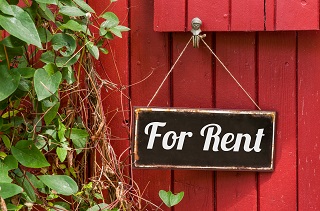People who rent homes don’t own their property. However, they still live there. By doing so, they pose risks to others. To protect themselves against third-party harm, most renters will carry renters liability insurance. How much coverage do you need? What are the benefits of increasing your liability limits. Let’s take a look.
limits. Let’s take a look.
Getting more liability insurance often equals one thing, more financial protection. Therefore, almost any renter can benefit from asking their agent for higher limits.
How Liability Coverage Works
Let’s say a neighbor trips and falls on your carpet. They get a concussion and sustain other injuries. They might have medical bills, lost income and face other financial challenges.
Or, what if you accidentally cause a kitchen fire while cleaning your oven. The event might ruin the appliance, and cause residual damage to other parts of the kitchen. Since you rent, these items belong to the property owner, and they might prove expensive to repair.
The injured neighbor might need help paying their medical bills. The person who owns the burnt appliances might hold you responsible for the damage. In both these cases, liability insurance might help. This coverage extends to the damage you cause to third parties or their belongings. It can help you compensate them for their losses, and even support legal settlements if they sue you.
Setting Up Liability Insurance
From the above examples, you can see it’s critical to have renters liability coverage. Not only does it help others, it also protects your own financial security. It’s such valuable protection that many property owners require you to get it before they will rent to you.
Still, the coverage required by your property owner might not be all the protection you need. Once you know the benchmark, consider if it’s wise to invest in higher levels of protection.
When to Get More Coverage
Most policies start with around $100,000 in liability coverage. Some might contain more specific limits on how much you can claim per bodily injury, such $1,000 per medical bill. Many renters find these limits sufficient. However, it’s always good to think about if you need more protection.
If you have more than $100,000 in personal assets, you might consider getting more coverage. It might protect you if an expensive lawsuit goes after your assets for restitution. Not only that, someone's damage costs might exceed the limits of your coverage in the first place. For costs above your limits, you might have to pay significantly out of pocket. That’s a loss you can’t afford.
So, don’t underestimate the importance of liability insurance. It might prove valuable in cases of unavoidable accidents in your rental home.
Also Read: Who Fixes Rental Damage? The Owner or Renter?